The MIT Energy Initiative will hold the Future Energy Systems Center Fall Workshop on November 14-15, 2023.
The Center Advisory Committee meeting during the workshop is the opportunity for Member companies to express their interests and priorities as we enter the next cycle of project selection.
Attendance at the Fall Workshop is restricted to Members of the Future Energy Systems Center and invited members of the MIT Community.
Agenda
| Tuesday, November 14 | |
| 8:00-8:45 am ET | Breakfast and registration |
| 8:45-9:00 am ET | Welcome Randall Field, Executive Director, Future Energy Systems Center, MIT Energy Initiative Robert Stoner, Director, MIT Energy Initiative |
| 9:00-10:30 am ET |
Is there a hydrogen market? Moderator: Speakers: |
| 10:30-11:00 am ET | Break |
| 11:00 am-12:30 pm ET |
What action is needed by governments to address transmission needs? Moderator: Speakers: |
| 12:30-1:30 pm ET | Lunch |
| 1:30-3:00 pm ET |
Fugitive emissions Moderator: Speakers: |
| 3:00-3:15 pm ET | Break |
| 3:15-4:45 pm ET |
Scaling up energy storage Moderator: Speakers: |
| 4:45-5:15 pm ET |
Project highlights by students and postdocs Speakers: |
| 5:15-6:15 pm ET | Poster session and reception Hydrogen carrier for long-distance distribution and storage Emily Lin, Graduate Research Assistant, MIT Department of Chemical Engineering Designing network tariffs for residential electrification Graham Turk, Graduate Student, MIT Energy Initiative Heating demand estimation across the U.S. building stock via multimodal data fusion Stephen Lee, Postdoctoral Associate, MIT Energy Initiative Comparative assessment of low-carbon liquid energy carriers for long-haul trucking Kariana Moreno, Graduate Research Assistant, MIT Department of Chemical Engineering Lower cost, CO2-free, H2 production from CH4 using liquid tin Braden Gilleland, Graduate Research Assistant, MIT Department of Mechanical Engineering Iron & steel: Region-specific deep decarbonization strategies Matt Mai, Graduate Research Assistant, MIT Integrated Design & Management Simulating electricity prices to assess alternative rate designs in low-carbon, high-electrification contexts Michael Giovanniello, Graduate Student, MIT Technology and Policy Program Decarbonization strategies for transportation via direct air capture of CO2 Tara Housen, Graduate Student, MIT Department of Aeronautics and Astronautics |
| 6:15 pm ET | Dinner |
| Wednesday, November 15 | |
| 8:00-9:00 am ET | Breakfast and registration |
| 9:00-10:40 am ET | Future Energy Systems Center Advisory Committee Meeting |
| 10:40-11:00 am ET | Break |
| 11:00 am-12:30 pm ET |
Renewables: How fast, how far? Moderator: Speakers: |
| 12:30-1:30 pm ET | Lunch |
| 1:30-3:00 pm ET November 15 afternoon sessions are also open to the MIT Climate & Sustainability Consortium |
Decarbonizing maritime shipping Moderator: Speakers: |
| 3:00-3:30 pm ET | Break |
| 3:30-5:00 pm ET |
Data centers Moderator: Sydney Sroka, Research Scientist, MIT Climate and Sustainability Consortium Speakers: |
| 5:00 pm ET | Closing remarks Randall Field, Executive Director, Future Energy Systems Center, MIT Energy Initiative |
| 5:15pm ET | Reception with poster session hosted by the MIT Climate & Sustainability Consortium This poster session features the work of MCSC Impact Fellows, MCSC seed awardees, and others in the MIT community. It is an opportunity to continue to amplify the ever-growing community in climate and sustainability across all of MIT including posters on the MCSC impact pathways, seed projects, and more. |
About the speakers
Florian Allroggen
Executive Director, Aerospace Climate & Sustainability, MIT Department of Aeronautics and Astronautics
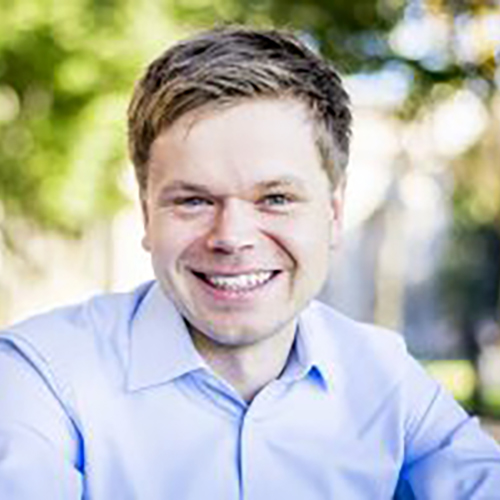
Florian Allroggen is the executive director of Aerospace Climate & Sustainability in MIT’s Department of Aeronautics and Astronautics. He co-leads the MIT Laboratory for Aviation and the Environment. His research brings together transport economics, environmental economics, and related research questions in energy economics. In his recent work, he focuses on understanding the impacts of transportation in general and aviation in particular on the climate and on plotting paths towards a more sustainable transportation sector. He develops and applies methods for techno-economic and lifecycle assessments, policy analyses, cost-benefit analysis, and market response modeling. Recently, he has co-led efforts on the energy transition for the aviation sector and on the mitigation of CO2 and non-CO2 impacts of aviation.
Noman Bashir
Computing & Climate Impact Fellow, MIT Climate and Sustainability Consortium

Noman Bashir, the Computing & Climate Impact Fellow at MIT Climate & Sustainability Consortium (MCSC), collaborates with MIT researchers and industry partners to accelerate the decarbonization of computing systems. His research focuses on decarbonizing large-scale systems, combining expertise in distributed systems, power systems, algorithms, and resource management. Bashir aims to aid decision-makers in diverse domains with short- and long-term decarbonization strategies while promoting informed and sustainable choices at the individual level. His impactful contributions are evident in publications at conferences like e-Energy, ASPLOS, Sigmetrics, EuroSys, and BuildSys. Bashir actively engages in the academic community, serving on program committees for conferences like e-Energy, BuildSys, SoCC, IPSN, and others. He also leads sustainability discussions as the organizing co-chair for the ACM SIGEnergy Workshop on Societal Decarbonization (SoDEC). More details about his work can be found on his webpage.
Carlos Batlle
Senior Lecturer, MIT Sloan School of Management
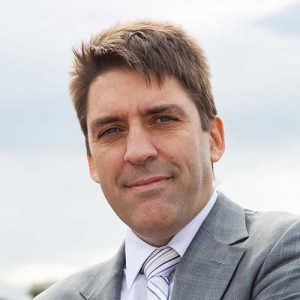
Carlos Batlle is currently a senior lecturer at the MIT Sloan School of Management, where he teaches the course entitled “Engineering, Economics and Regulation of the Electric Power Sector.” Since 2011, he has served at the MIT Energy Initiative, where he has been leading research projects and supervising PhD and master dissertations.
Batlle is a professor at Comillas Pontifical University in Madrid, where he teaches Energy Economics and Electric Power Systems Regulation. He is also member of the Institute for Research in Technology of this university.
Batlle is also a part-time professor at the Florence School of Regulation (FSR), an institution under the aegis of the European University in Florence, where he is member of the Training Program for European Energy Regulators and (among other courses) director of the FSR Annual Training on the Regulation of Energy Utilities. He is also member of the Advisory Academic Panel of Ofgem, the UK energy National Regulatory Authority.
He has worked and lectured extensively on electric power systems regulation, with special focus on markets and end-user rate design. He has also a vast experience on the operation, planning, and risk management modeling of electricity generation. He has rendered consulting services for (mainly) governments and international regulatory institutions in over 30 countries.
Adam Belay
Associate Professor, MIT Department of Electrical Engineering and Computer Science

Adam Belay is an associate professor of Computer Science at the Massachusetts Institute of Technology, where he works on operating systems, runtime systems, and distributed systems. During his PhD at Stanford, he developed Dune, a system that safely exposes privileged CPU instructions to userspace; and IX, a dataplane operating system that significantly accelerates I/O performance. Belay’s current research interests lie in developing systems that cut across hardware and software layers to increase datacenter efficiency and performance. He is a member of the Parallel and Distributed Operating Systems Group, and a recipient of a Google Faculty Award, a Facebook Research Award, and the Stanford Graduate Fellowship.
Enrique Bosch
Director of Corporate Innovation, Avangrid
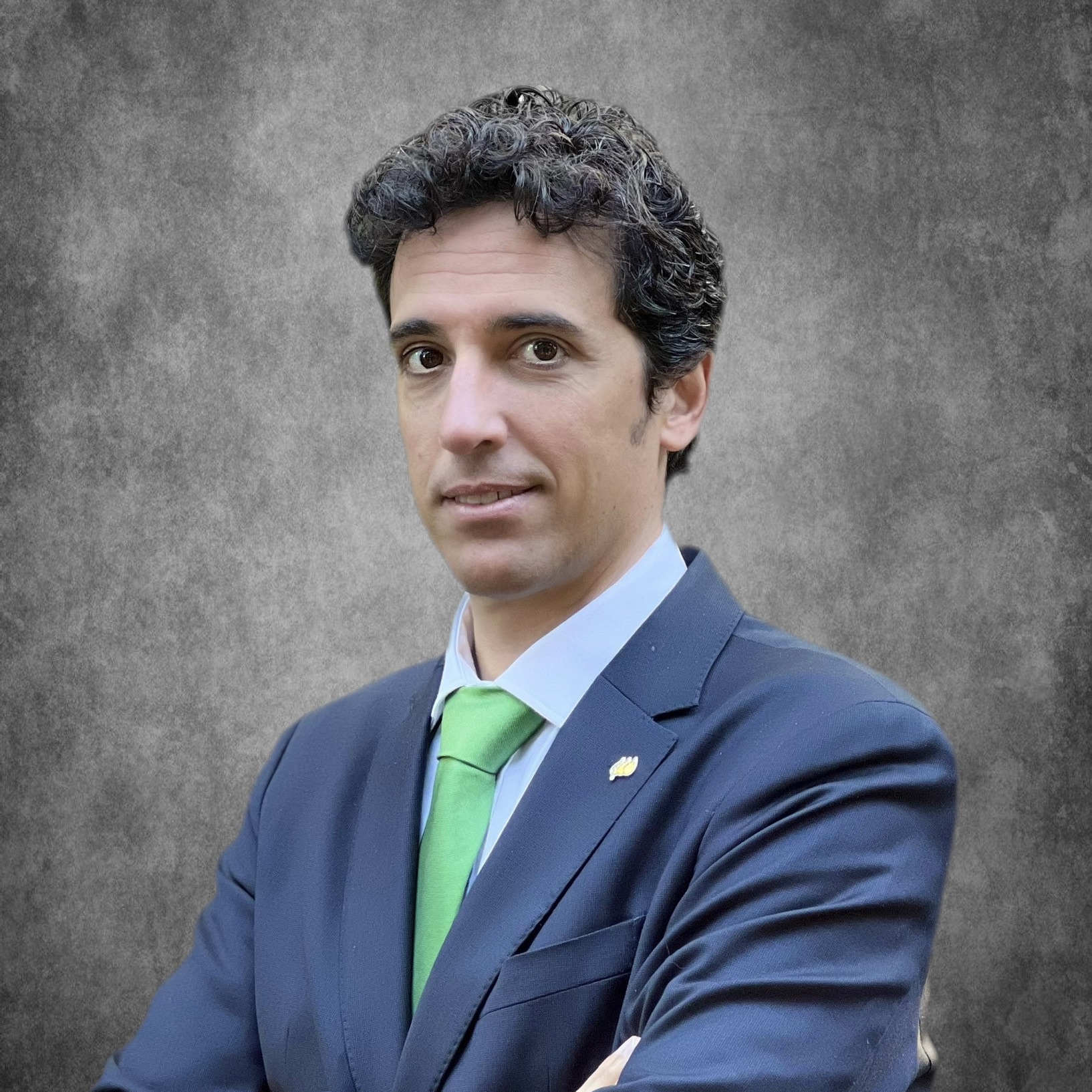
Enrique Bosch is the director of Corporate Innovation at Avangrid, a leading sustainable energy company in the United States. In this role, he leads Avangrid’s innovation initiatives and definition of global development strategies, including clean hydrogen, energy storage, smart grids, and energy optimization.
Bosch has over two decades of energy sector experience on projects for the design and implementation of clean energy technologies, climate change, energy transition, emissions control, and process optimization. He holds an MBA and PhD in chemical engineering from the University of Seville, has co-authored +15 scientific papers presented in international conferences, co-invented two patents related to environmental technologies, and is a member of the UMass Amherst Offshore Wind Advisory Board.
Audun Botterud
Principal Research Scientist, MIT Laboratory for Decisions and Information Systems; Senior Energy Systems Engineer, Argonne National Laboratory

Audun Botterud is a principal research scientist in Laboratory for Information and Decision Systems (LIDS) at MIT, where he leads the Energy Analytics Group. He has a co-appointment in the Energy Systems and Infrastructure Analysis Division at Argonne National Laboratory. His research interests include power systems, electricity markets, renewable energy, and energy storage. Botterud holds a MSc (industrial engineering) and a PhD (electrical power engineering), both from the Norwegian University of Science and Technology. He was previously with SINTEF Energy Research in Trondheim, Norway.
Roger Clark
Senior Vice President and Chief Commercial Officer, Associated Electric Cooperative Inc.
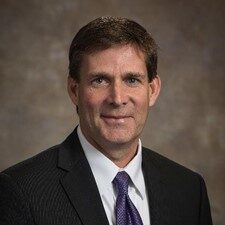
Roger Clark joined Associated Electric Cooperative, Inc. in April 2007 as director of Member Services and Corporate Communications. In January 2008, he became vice president of Engineering and Operations at Associated Electric. Clark currently serves as SVP/Chief Commercial Officer, Engineering and Operations. Responsibilities include Transmission Planning, System Operations, Resource Planning, Fuels Management, and Commercial/Marketing transactions across a transmission system of 9,600 miles (69kV-500kV), over 200 interconnections and 5700 megawatts of central station generation.
Previously, Clark served nearly seven years as general manager and Chief Executive Officer of Boone Electric Cooperative in Columbia, MO. A graduate of the U.S. Air Force Academy, Clark has a bachelor’s degree in engineering and served eight years of active military duty as a tactical fighter pilot. He later earned a master’s degree in business administration from Drury University in Springfield, MO.
Clark currently serves on the Board of Directors of SERC Reliability Corporation. He is a Member Representative for the North American Transmission Forum (NATF), Southeastern Regional Transmission Planning (SERTP), and Eastern Interconnection Planning Collaborative (EIPC). He previously served on the Board of Directors for the Association of Missouri Electric Cooperatives and Central Electric Power Cooperative. He is a past chairman of Touchstone Energy Cooperatives, a national alliance of more than 640 cooperatives in 46 states.
James Cuff
Executive Director, MIT Office of Research Computing and Data
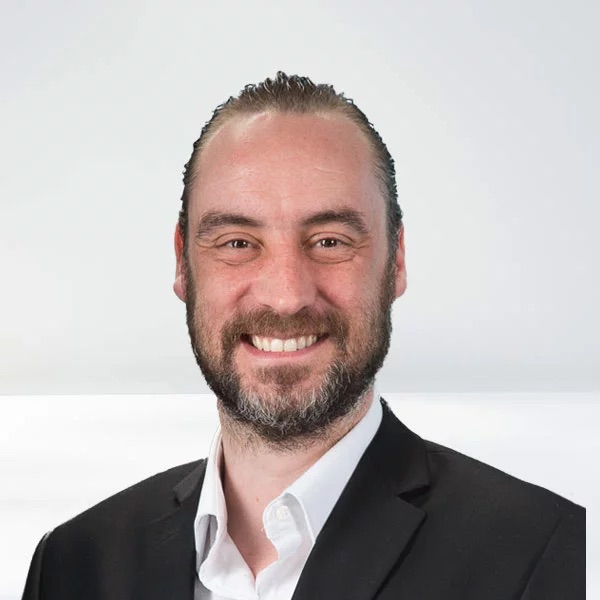
James Cuff is the inaugural executive director of the MIT Office of Research Computing and Data. He has over two decades of experience in building green, sustainable, at scale high performance computing. He has been a strategic advisor to a number of early-stage advanced technology companies, a distinguished engineer and assistant dean at Harvard University. He was also a group leader at both the MIT and Harvard Broad Institute, and the Wellcome Trust Sanger Institute in the UK, where his work focused on informing the human genome with computation. Cuff holds a DPhil in molecular biophysics from Oxford University.
Keith Dawe
Head of Decarbonization and Energy Transition, Cargill Ocean Transportation

Keith Dawe is the head of decarbonization and energy transition at Cargill Ocean Transportation, a worldwide leader in chartering, trading, logistics, operations, and risk management of ocean freight.
Dawe first joined Cargill in 2005 in the energy and ocean transportation businesses where he developed joint ventures, acquisitions, and other asset related projects. Since 2017 he has been responsible for decarbonization projects with Cargill Ocean Transportation and now leads a small team dedicated to this goal.
Dawe is a member of BIMCO’s environment committee, the advisory board of the Mærsk Mc-Kinney Møller Center for Zero Carbon Shipping and the strategy committee of the Getting to Zero Coalition. Prior to joining Cargill, Dawe worked as an M&A manager and as a developer of limited recourse finance projects.
Vandan Divatia
Vice President, Transmission Policy, Interconnections & Compliance, Eversource

Vandan Divatia is the vice president, Transmission Policy, Interconnections & Compliance. Over the past 20 years he has held various positions in Operations, Economic Planning, Business Development, Strategy, and Compliance.
Divatia has led the evaluation of numerous renewable energy projects from a reliability, economic, and environmental perspective resulting in selection of over 15 TWh of clean energy projects including large hydro, wind, solar, and fuel cells. In his current role, Divatia oversees Transmission Interconnections including negotiation of commercial agreements and cost recovery, Stakeholder relations for Transmission, and Compliance. Divatia’s current focus also includes shaping policy, strategy, and solution development that enables the Grid of the Future to meet carbon emission reduction targets via electrification driven load growth and clean energy integration.
Divatia graduated from Georgia Institute of Technology with a Masters in power systems during which time his work included applying artificial neural networks for power system applications. His academic experiences also included a Utility Management Program from the University of Connecticut focusing on how to optimize financial and operational performance. In 2018 he graduated from MIT’s program in Strategy and Innovation including a focus on Sustainability.
Divatia serves on the Executive Committee of the Board for the Northeast Energy and Commerce Association with focus on creating a forum for industry wide conversation on the future of energy in New England.
David Eaglesham
Founder and CTO, Electric Hydrogen Company

Dave Eaglesham is currently founder and chief technology officer at Electric Hydrogen, a leader in high-performance electrolysis. Electric Hydrogen is decarbonizing the world’s heavy industry by delivering low-cost green hydrogen from renewable energy resources. He was previously entrepreneur-in-residence at Breakthrough Energy Ventures, the $B Venture fund for Climate Change founded by Bill Gates, where he led sector assessments in hydrogen and related technology opportunities. Eaglesham was chief technology officer at First Solar, the world’s most successful startup in PV, where he grew revenues from ~$50M to >$3B, helped take the company public, and drove PV cost/W from $1.90 to $0.54, while improving efficiency from 9% to >14%. He has also played executive leadership roles at Applied Materials, Lawrence Livermore National Labs, Agere Systems, and Lucent Technologies. At Bell Labs, he was ultimately VP of Electronic Device Research. He was Outstanding Young Investigator of the Materials Research Society (MRS) in 1994, and president of the MRS in 2005. Eaglesham has a BSc in chemical physics and a PhD in physics from the University of Bristol and achieved tenure as a lecturer at Liverpool University. He is a fellow of the American Physical Society.
Randall Field
Executive Director, Future Energy Systems Center, MIT Energy Initiative
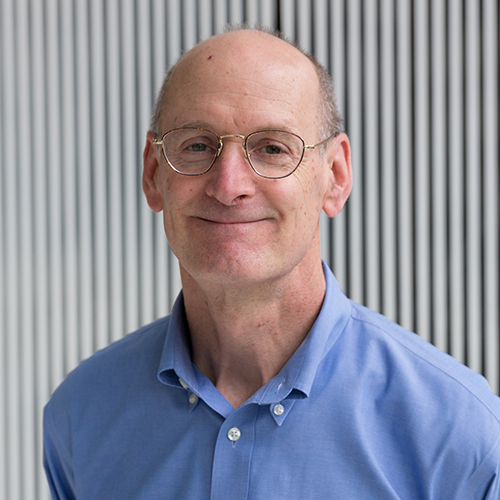
Randall Field is executive director of the MIT Future Energy Systems Center which examines the accelerating energy transition as emerging technologies, policies, demographics, and economics reshaping the landscape of energy supply and demand. He is also executive director of MIT’s Fusion Study examining the global multidecadal dynamics of the energy transition and how fusion energy can contribute to decarbonizing global energy systems. He was previously executive director for MITEI’s Mobility Systems Center, assessing the impact of transformations in vehicle and fuel technologies, service and business models, and consumer behavior in the movement of both passengers and goods. He was also executive director for MIT’s Mobility of the Future study which produced the Insights in the Future Mobility report covering global projections of alternative fuel vehicle fleets and energy consumption, deployment of charging and fueling infrastructure, attitudes towards mobility, and the impacts of innovative technologies and business models on urban mobility. As executive director for the Conversion Research Program at MIT for 10 years, Field worked with a multidisciplinary team of researchers to explore various conversion technologies for production of alternative fuels. Prior to MIT, Field worked for Aspen Technology for 23 years. Field received a SM in chemical engineering practice from MIT and a BS in chemical engineering from Caltech.
Keith Frame
Principal Engineer, Low Carbon Technology, ConocoPhillips
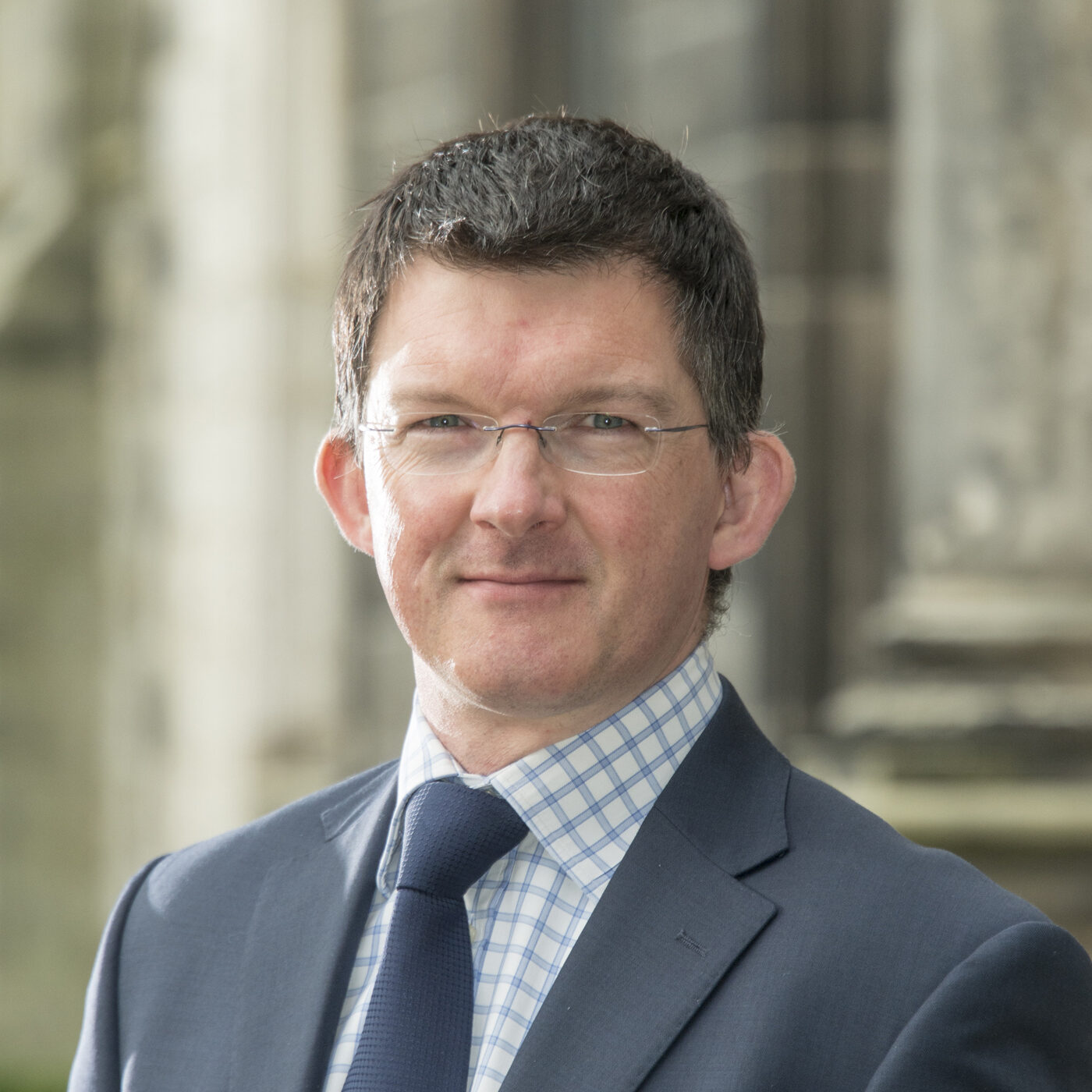
Keith Frame is a 25-year engineering professional with experience in operations, capital projects, and technology development. He is currently focused on supporting the decarbonization of traditional oil & gas assets, while canvassing the technology landscape for viable solutions to address hard to abate emissions. In his role, Frame coordinates company efforts in support of the Oil & Gas Methane Partnership 2.0.
Frame graduated Heriot-Watt University, Edinburgh, UK in 1998 with a masters in chemical engineering with environmental management.
William H. Green
Hoyt Hottel Professor in Chemical Engineering, MIT Department of Chemical Engineering

William H. Green is a world leader in chemical kinetics and reaction engineering, and in development of related software. He has led many combined experimental/modeling research projects related to fuels, combustion, pyrolysis, and oxidative stability, and he invented an instrument to directly measure rate coefficients for multi-channel reactions. He developed computer methods to predict the behavior of complicated reacting mixtures, many of which are included in the Reaction Mechanism Generator software package. Recently his group has developed machine-learning methods for accurately predicting the products of organic reactions and various chemical properties, incorporated in the ASKCOS and Chemprop software packages. He also invents and analyzes technologies to reduce greenhouse gas emissions, particularly in the transportation/fuel sector. Two of his greenhouse-gas reduction inventions are now being commercialized, one by Thiozen, a company he co-founded. He earned his B.A. from Swarthmore College, and his Ph.D. from UC Berkeley. After postdocs at Cambridge and Penn, he worked for Exxon for 6 years before joining the Chemical Engineering faculty at MIT in 1997. He has co-authored more than 330 journal articles, which have been cited more than 20,000 times. He is a Fellow of the AAAS and of the Combustion Institute, and has received the ACS Glenn Award in Fuel Chemistry and AIChE’s Wilhelm Award in Reaction Engineering. He previously served as the Editor of the International Journal of Chemical Kinetics, as the faculty chair of MIT’s Mobility of the Future project, and as the Executive Officer of the MIT Department of Chemical Engineering.
Florian Gruschwitz
Senior Business Development Manager, MAN Energy Solution

Florian Gruschwitz started his career as senior project manager in R&D for Power Plant Auxiliary Systems at MAN Energy Solutions in 2007. Further on, he had several responsibilities in the Production and Engineering departments of the company.
Today, he is an active driver in the International Business Development & New Energy Solutions Division with a technology focus on Power-to-X Solutions; in line with this, he furthermore acts as a representative in industry, regional, and national initiatives for ‘Carbon Management’.
Gruschwitz holds a PhD degree in chemical engineering and a Master’s degree in business engineering from Karlsruhe Institute of Technology as well as a Master of Laws degree from University of Saarland.
Steven Hamburg
Chief Scientist and Senior Vice President, Environmental Defense Fund
 Steven Hamburg is chief scientist and senior vice president of the Environmental Defense Fund (EDF) as well as executive manager of MethaneSAT LLC (non-profit subsidiary of EDF). Trained at Vassar College (AB, biology), and Yale University (MFS ecology; PhD, biogeochemistry and ecosystem ecology), he has also held fellowships at Stanford (post-doc, ecology), Harvard (Bullard, mid-career) and Yale (Bass Distinguished Visiting Environmental Scholar). Hamburg was on the faculty of University of Kansas (KU) for nine years followed by 16 years at Brown University, where he led several units; founding director of the Global Environment Program at the Watson Institute for International Studies (Brown), director /interim director of the Environmental Studies Program (KU/Brown) and Environmental Ombudsman (KU). He has published more than 100 scientific papers on biogeochemistry, climate change impacts, carbon/ghg accounting and methane emissions from the oil and gas value chain. He has served as a lead author for the IPCC and was acknowledged as one of the contributing recipients of the 2007 Nobel Peace Prize. He was twice awarded the US EPA Environmental Merit Award from Region 1 for his climate change related work. He is currently Chair of UNEP’s International Methane Emissions Observatory’s Science Oversight Committee, a member of the EPA’s Science Advisory Committee, a member of the Division on Earth and Life Sciences of the National Academies of Science, Engineering and Medicine’s Advisory Board, and serves in other advisory capacities.
Steven Hamburg is chief scientist and senior vice president of the Environmental Defense Fund (EDF) as well as executive manager of MethaneSAT LLC (non-profit subsidiary of EDF). Trained at Vassar College (AB, biology), and Yale University (MFS ecology; PhD, biogeochemistry and ecosystem ecology), he has also held fellowships at Stanford (post-doc, ecology), Harvard (Bullard, mid-career) and Yale (Bass Distinguished Visiting Environmental Scholar). Hamburg was on the faculty of University of Kansas (KU) for nine years followed by 16 years at Brown University, where he led several units; founding director of the Global Environment Program at the Watson Institute for International Studies (Brown), director /interim director of the Environmental Studies Program (KU/Brown) and Environmental Ombudsman (KU). He has published more than 100 scientific papers on biogeochemistry, climate change impacts, carbon/ghg accounting and methane emissions from the oil and gas value chain. He has served as a lead author for the IPCC and was acknowledged as one of the contributing recipients of the 2007 Nobel Peace Prize. He was twice awarded the US EPA Environmental Merit Award from Region 1 for his climate change related work. He is currently Chair of UNEP’s International Methane Emissions Observatory’s Science Oversight Committee, a member of the EPA’s Science Advisory Committee, a member of the Division on Earth and Life Sciences of the National Academies of Science, Engineering and Medicine’s Advisory Board, and serves in other advisory capacities.
Amrit Jalan
Principal, Eni Next

Amrit Jalan is a principal with Eni Next, the corporate ventures arm of Eni S.p.A. with responsibilities spanning deal origination, diligence, and execution, as well as post-investment portfolio engagement. He serves on the boards of multiple portfolio companies spanning key energy transition verticals like critical minerals, methane emissions and energy storage.
Jalan brings over a decade of experience developing and deploying novel technologies in the energy and climate-tech space. Prior to Eni, he held positions of increasing responsibility in the energy industry and was responsible for building technology portfolios in domains like carbon capture, separations and biofuels.
Jalan holds an MBA from Harvard Business School, MS/PhD in chemical engineering from MIT and BS in chemical engineering from IIT Bombay (India).
Michael Kerby
Senior Advisor, ExxonMobil
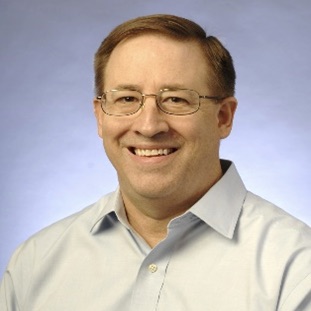 After completing a PhD from the University of Texas, Austin and a postdoc at the University of California, Berkeley, Mike Kerby joined ExxonMobil in 1989. Kerby has held senior leadership roles supporting refining, chemicals, and lubricants as well as managing ExxonMobil’s longer-range research activities in support of the energy transition. Prior roles include global polymer technology manager, corporate strategic research manager, and vice president for lubricants technology. In his current role as senior advisor, Kerby supports the corporation to achieve its decarbonization goals. Kerby is a past recipient of the American Chemical Society’s Heroes of Chemistry Award for commercializing technology to produce cleaner diesel fuels. He is participating in a National Petroleum Council study focused on the deployment of hydrogen in the U.S. and serves on the Executive Board for Texas A&M’s Energy Institute. He has served on the National Academies Board on Chemical Sciences and Technology, the Chemical Heritage Foundation, the Texas Bioenergy Policy Council, and the United Way. Kerby holds more than 35 U.S. patents.
After completing a PhD from the University of Texas, Austin and a postdoc at the University of California, Berkeley, Mike Kerby joined ExxonMobil in 1989. Kerby has held senior leadership roles supporting refining, chemicals, and lubricants as well as managing ExxonMobil’s longer-range research activities in support of the energy transition. Prior roles include global polymer technology manager, corporate strategic research manager, and vice president for lubricants technology. In his current role as senior advisor, Kerby supports the corporation to achieve its decarbonization goals. Kerby is a past recipient of the American Chemical Society’s Heroes of Chemistry Award for commercializing technology to produce cleaner diesel fuels. He is participating in a National Petroleum Council study focused on the deployment of hydrogen in the U.S. and serves on the Executive Board for Texas A&M’s Energy Institute. He has served on the National Academies Board on Chemical Sciences and Technology, the Chemical Heritage Foundation, the Texas Bioenergy Policy Council, and the United Way. Kerby holds more than 35 U.S. patents.
Jordan Kwok
Director, Federal Regulatory Affairs, Exelon
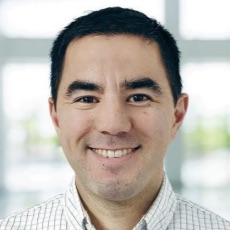 Jordan Kwok is Exelon’s director of Federal Regulatory Affairs. In this role, Kwok is responsible for managing Exelon’s regulatory advocacy before the Federal Energy Regulatory Commission (FERC), including supporting internal position development and coordinating with peer utilities across multiple venues. Kwok started his career at FERC, where he focused on policy formulation and implementation in FERC’s Office of Energy Policy and Innovation. Prior to joining Exelon, Kwok was a consultant with Charles River Associates, where he assisted clients through engagements related to regulatory strategy, market design, price forecasting, litigation, and transaction support. Kwok also managed the State Department’s Power Sector Program, working with developing countries toward reform to foster sector solvency, competition, sustainability, and access. Kwok is a graduate of MIT’s Technology and Policy Program (2010) and adjunct faculty at Georgetown University.
Jordan Kwok is Exelon’s director of Federal Regulatory Affairs. In this role, Kwok is responsible for managing Exelon’s regulatory advocacy before the Federal Energy Regulatory Commission (FERC), including supporting internal position development and coordinating with peer utilities across multiple venues. Kwok started his career at FERC, where he focused on policy formulation and implementation in FERC’s Office of Energy Policy and Innovation. Prior to joining Exelon, Kwok was a consultant with Charles River Associates, where he assisted clients through engagements related to regulatory strategy, market design, price forecasting, litigation, and transaction support. Kwok also managed the State Department’s Power Sector Program, working with developing countries toward reform to foster sector solvency, competition, sustainability, and access. Kwok is a graduate of MIT’s Technology and Policy Program (2010) and adjunct faculty at Georgetown University.
Aditya Limaye
Machine Learning Engineer, Tyba Energy

Aditya (Adi) Limaye is a machine learning engineer at Tyba Energy. Tyba develops software solutions that enable energy storage developers and investors to effectively value and operate their grid-scale energy storage assets. At Tyba, Limaye leads efforts related to short-term electricity price forecasting and energy market bid optimization. Prior to Tyba, Limaye worked on developing high-accuracy physical models for bimolecular simulation at D. E. Shaw Research. Limaye holds a PhD in chemical engineering from MIT and a BS in chemical engineering from the University of California, Berkeley.
Dharik Mallapragada
Principal Research Scientist, MIT Energy Initiative

Dharik Mallapragada is a principal research scientist at the MIT Energy Initiative. Mallapragada’s current research focuses on advancing energy systems modeling tools to study implications of renewables integration in the power sector, economy-wide electrification, and assessment of emerging energy technologies. He led the systems modeling effort in both the U.S. and emerging market, developing economies contexts for the Future of Energy Storage report. This work was foundational to the economic and policy part in the study. As the chief developer of GenX—a versatile, least-cost optimization platform for planning future electricity systems coupling the mix of generation technologies, transmission additions, and energy storage—his work will be enabling for many other projects going forward. Mallapragada is interested in developing quantitative frameworks to study the economic and environmental outcomes of process and system integration spanning multiple end uses considering climate change and technology evolution. He is also interested in studying new and emerging pathways for electrification of difficult-to decarbonize sectors, such as industrial processes and space heating.
Maria Olczak
Research Fellow, Oxford Institute for Energy Studies
 Maria Olczak has recently joined the Oxford Institute for Energy Studies as a research fellow focusing on the Quantification, Measurement, Reporting and Verification (QMRV) of GHG Emissions.
Maria Olczak has recently joined the Oxford Institute for Energy Studies as a research fellow focusing on the Quantification, Measurement, Reporting and Verification (QMRV) of GHG Emissions.
Olczak is also a PhD candidate at the Queen Mary University of London’s School of Engineering and Materials Science, researching policies and technologies to monitor and mitigate methane emissions across major man-made sources.
In 2022, she joined the Environmental Defense Fund as a consultant to pursue research on coal mine methane and environmental disclosure policies. Before that, Olczak spent five years as a research associate at the European University Institute’s Florence School of Regulation Gas Area. She has focused mainly on the policy and regulatory instruments to address methane emissions, the decarbonization of the EU gas market and the role of low-carbon hydrogen and biogas/biomethane.
Olczak started her professional career in the Polish Ministry of the Environment, where she was actively involved in preparations to and proceedings of the COP19/CMP9, as a member of the Polish Presidency Team.
Pritish Parida
Senior Research Scientist and Technical Lead, Sustainable Computing, IBM Research

Pritish Parida is a senior research scientist and technical lead for Sustainable Computing at IBM Research. He is currently the co-PI of IBM-ARPA-E program on Systems Two-phase cooling (DE-AR0001577) and the chair of ITE-Energy Efficiency metric activity workgroup in The Green Grid. He has extensive experience in the development of cutting-edge thermal technologies including chip-embedded two-phase cooling, for high performance computing systems and embedded applications such as UAVs (unmanned aerial vehicles), RF (radio frequency), and 5G devices. He obtained his PhD in mechanical engineering from Virginia Tech. Parida has received several technical and innovation awards at IBM as well as outside, including Outstanding Technical Achievement Award (2016, 2021, 2022), Outstanding Research Award (2021), Research Division Award (2012, 2016, 2021), Outstanding Technical Paper Award (2012), Best Paper Award (SEMI-Therm 2017), and Best Poster Award (GOMACTech 2017). Parida has co-authored over 60 peer-reviewed publications, three book chapters, and holds over 100 issued patents.
John Parsons
Deputy Director for Research, MIT Center for Energy and Environmental Policy Research
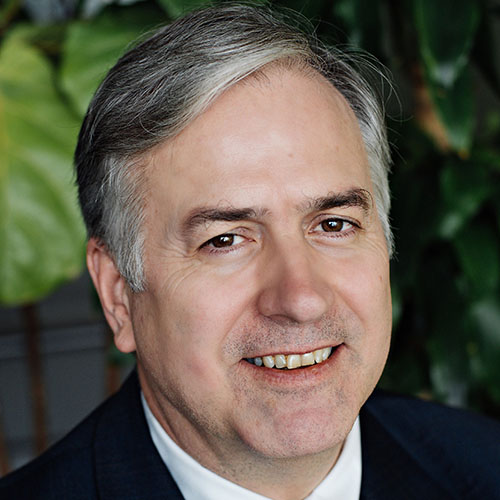
John Parsons is the deputy director for research at MIT’s Center for Energy and Environmental Policy Research (CEEPR). His research focuses on the valuation and financing of investments in the energy industry, especially those needed for the transition to a low carbon economy, and also on the problems of risk in energy and environment markets. He was a co-director of the recent MIT study on the Future of Nuclear Energy in a Carbon Constrained World and continues to analyze diverse investment options in the nuclear industry. Parsons serves as an associate member of the U.S. CFTC’s Energy and Environmental Markets Advisory Committee and has been a visiting scholar at the U.S. Federal Energy Regulatory Commission. He holds a BA in economics from Princeton University and a PhD in economics from Northwestern University.
Desirée Plata
Associate Professor, MIT Department of Civil and Environmental Engineering
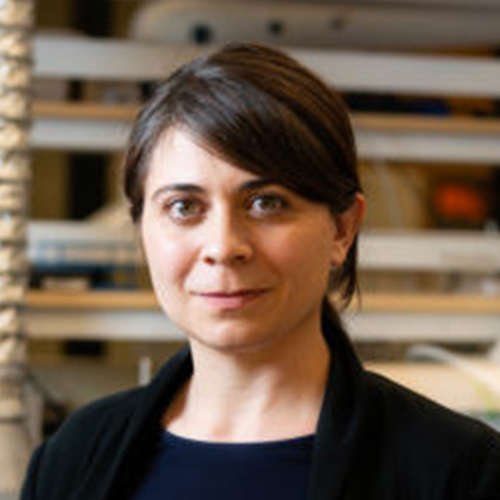
Desirée L. Plata is an associate professor in the Department of Civil & Environmental Engineering at MIT. Her research interests include environmental chemistry, environmentally and economically sustainable design, industrially-important processes and materials, energy technologies (fossil and low-carbon), and advanced materials synthesis and manufacture. Plata earned her doctoral degree in chemical oceanography and environmental chemistry from MIT and the Woods Hole Oceanographic Institution’s Joint Program in Oceanography (2009) and her bachelor’s degree in chemistry from Union College in Schenectady, NY (2003). Plata is an NSF CAREER Awardee (2016), an Odebrecht-Braskem Sustainable Innovation Awardee (2015), a two-time National Academy of Engineers Frontiers of Engineering Fellow (2012, 2020), a two-time National Academy of Sciences Kavli Frontiers of Science Fellow (2011, 2013), a Caltech Resnick Sustainability Fellow (2017), and winner of MIT’s Junior Bose Teaching Award (2019) and Edgerton Faculty Award (2021). Prior to coming to MIT, Plata served as John J. Lee Assistant Professor of Chemical & Environmental Engineering and associate director for Research at the Center for Green Chemistry and Green Engineering at Yale (2014-2018).
Rohemir Ramirez-Ballagas
Foreign Affairs Officer, Office of Global Change, U.S. Department of State
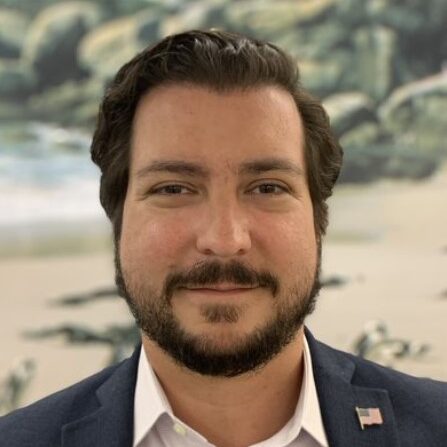
Rohemir Ramirez-Ballagas is a foreign affairs officer and lead IMO-GHG negotiator for the Office of Global Change at the U.S. Department of State. His portfolio includes international civil aviation GHG emissions, international shipping GHG emissions, carbon markets, and climate bilateral relationships with European countries. He leads technical level negotiations at ICAO, IMO, and the UNFCCC.
Prior to joining the U.S. Department of State, Ramirez-Ballagas was a staff attorney for CLF Massachusetts working in the Clean Energy & Climate Change and Clean Air and Water Programs. Ramirez-Ballagas was also a judicial law clerk to the Honorable Juan R. Torruella of the United States Court of Appeals and an Honors attorney fellow at the Environmental Protection Agency, Region 1.
Ramirez-Ballagas holds an LLM from Harvard Law School, where he served as a student clinician at the Emmett Environmental Law and Policy Clinic and as line editor of the Environmental Law Review.
Ramirez-Ballagas received his JD from the University of Puerto Rico School of Law, where he was editor-in-chief of the University of Puerto Rico Law Review and a student clinician at the University of Puerto Rico Environmental Law Clinic. He has a BA in economics and political science from the University of Puerto Rico, Rìo Piedras Campus.
Susan Solomon
Martin Professor of Environmental Studies, MIT Department of Earth, Atmospheric, & Planetary Sciences

Susan Solomon is the Martin Professor of Environmental Studies at the Massachusetts Institute of Technology. She is well known for pioneering research on the Antarctic ozone hole as well as on the irreversibility of climate change. She received the 1999 US National Medal of Science (highest scientific award in the US), the Grande Medaille of the French Academy of Sciences, the Crafoord Prize of the Swedish Academy of Sciences, the Blue Planet Prize, and the Volvo prize. She is a member of the National Academy of Sciences, the French Academy of Sciences, the Pontifical Academy of Sciences, and the Royal Society in the UK. Time magazine named Solomon as one of the 100 most influential people in the world in 2008. A glacier in the Antarctic has been named after her.
Sydney Sroka
Research Scientist, MIT Climate and Sustainability Consortium

Sydney Sroka received her PhD in mechanical engineering and computation from MIT in 2021 where her research focused on hurricane intensification and air-sea interaction. She is currently a research scientist with the MIT Climate and Sustainability Consortium where she supports data and computing activities related to industrial decarbonization and resilience.
Robert Stoner
Director, MIT Energy Initiative

Robert Stoner is the director of MITEI and founding director of the MIT Tata Center for Technology and Design. He was previously MITEI’s deputy director for science and technology. Stoner is currently a member of the MIT Energy Council. He also serves on the Board of Directors of, and the Science and Technology Committee of, the Alliance for Sustainable Energy, which oversees the U.S. National Renewable Energy Laboratory (NREL), and as a member and secretary of the Global Commission to End Energy Poverty.
Stoner is the inventor of numerous computational and ultrafast optical measurement techniques and has built and managed successful technology firms in the semiconductor, IT, and optics industries. From 2007 through 2009, he lived and worked in Africa and India while serving in a variety of senior roles within the Clinton Foundation, including as the CEO of the Clinton Development Initiative, and director of the Clinton Climate Initiative for Africa. His present research at MIT focuses on solutions to energy poverty, and the design and optimization of energy systems and business models in the developing world. He earned his bachelor’s degree in engineering physics from Queen’s University and PhD from Brown University in condensed matter physics.
Thais Teixeira
Technical Consultant, Energy Research Office, Ministry of Mines and Energy, Brazil
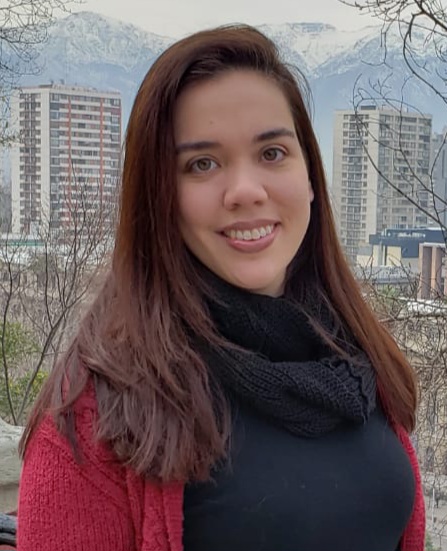
Thais Teixeira is a technical consultant at EPE (Energy Research Office), Brazilian Federal Office linked to the Ministry of Mines and Energy (MME), where she leads the regional interconnections expansion planning team, that integrates the Transmission Planning Superintendence.
Her fields of research and work include power systems expansion, power stability analysis, HVDC technology, renewable energy integration, and energy storage.
Teixeira holds a bachelor and a master`s degree in electrical engineering, both from the Federal University of Rio de Janeiro (UFRJ) and a postgraduate degree in project management from the Pontifical Catholic University of Minas Gerais (PUC-MG).
Her latest major professional experience was in the planning studies to recommend a new HVDC link for the Brazilian electricity grid. Her main previous research was related to energy storage, subject of her master`s dissertation and of her scientific paper publication in international journal.
Her previous experience includes working at ONS (National System Operator) and in Project Consulting Companies, with computational modeling for Dynamic Security Assessment of Power Systems.
Jessika Trancik
Professor, MIT Institute for Data, Systems, and Society
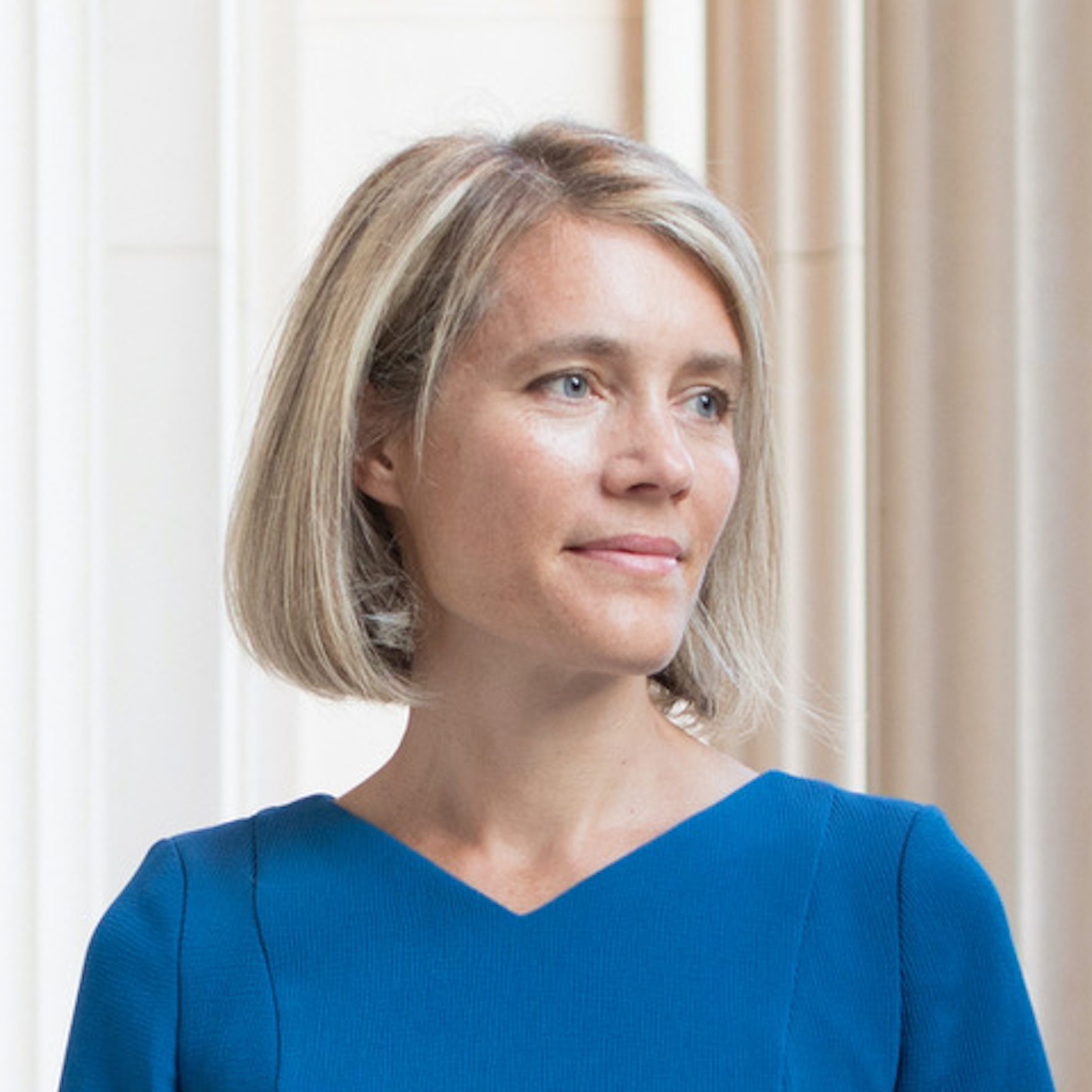
Jessika Trancik is a professor in the Institute for Data, Systems, and Society at the Massachusetts Institute of Technology. Her research examines the dynamic costs, performance, and environmental impacts of energy systems to inform climate policy and accelerate beneficial and equitable technology innovation. Her projects focus on all energy services including electricity, transportation, heating, and industrial processes. This work spans solar energy, wind energy, energy storage, low-carbon fuels, electric vehicles, and nuclear fission among other technologies. Trancik received her BS from Cornell University and her PhD from the University of Oxford as a Rhodes Scholar. She is currently an external professor at the Santa Fe Institute, and was formerly at Columbia University’s Earth Institute, and at WSP International/UNOPS (now Interpeace) in Geneva.
Anshul Tuteja
Global Fleet Optimization Associate Vice President, Global Marine Operations, Royal Caribbean Group

Anshul Tuteja is the associate vice president with Royal Caribbean Group (NYSE:RCL), one of the leading cruise companies in the world with a global fleet of 64 ships traveling to approximately 1,000 destinations around the world. He heads the Global Fleet Optimization & Decarbonization for all five cruise brands under the Group Umbrella, based in Miami.
Tuteja has a marine engineering background (BSc). He sailed the world oceans as an engineer officer for five+ years before he moved to New York to earn a master’s degree in business administration (MBA). He then joined Maersk, the world’s leading ocean liner company and did global stints in Singapore, Mumbai, and Copenhagen, where he was responsible for energy efficiency improvements and emissions reduction of the Maersk Liner fleet.
He has a strong interest in sustainable business operations, creating a framework to accelerate change and fast-track innovation that addresses climate risks.
Age van der Mei
Chief Scientist, DUINN

Age van der Mei is chief scientist of DUINN, co-founder of Circular Statistics, and research collaborates with MIT-LIDS. Working towards climate goals, in 2016 he helped develop the current hydrogen strategy in The Netherlands. In 2018, van der Mei and his team developed the framework for what became the EU’s largest electric and hydrogen public transport. Winner of the 2019 Innofest award for GRIDA—an energy network planning algorithm—van der Mei and his team are currently scaling up to help plan new and large-scale heat and hydrogen infrastructure. His professional goal is to help reduce CO2-emissions by 1 megaton by 2025. He has a background is in economics (University of Groningen), biochemistry, and scenario planning (Oxford University & Said Business school). When not trying to save the planet, he loves sailing, skating, and the cross-triathlon.
Melany Vargas
VP, Head of Hydrogen Consulting, Wood Mackenzie
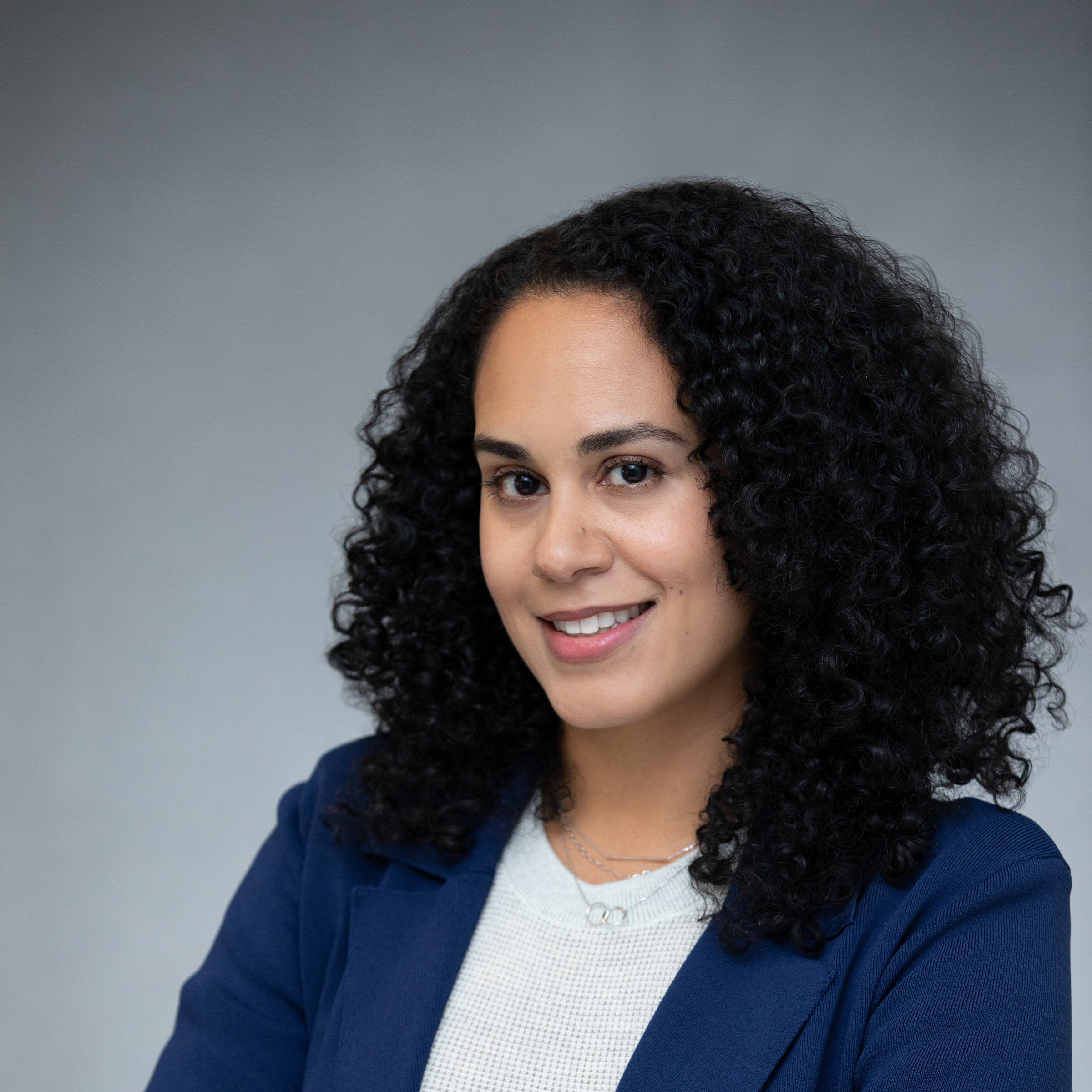
Melany Vargas leads the Global Hydrogen Consulting Practice at Wood Mackenzie. She has supported a number of established energy companies and new developers as they grow their footprint in or enter low-carbon hydrogen markets, including developing market entry strategies, screening for regions and opportunities, developing analysis and reports for policy and regulatory advocacy, and performing commercial due diligence and capital raise efforts across the hydrogen value chain. She has also supported the development of Wood Mackenzie’s proprietary hydrogen modelling capabilities across low-carbon hydrogen supply, demand, and technoeconomic analysis. Vargas has extensive experience solving strategic problems for clients across the energy value chain, including oilfield service companies, E&Ps, IOCs, gas and NGL infrastructure and logistics, chemicals, utilities, and mining. Since 2015, she has focused her career on applying her deep expertise in fossil fuel value chains to solving Energy Transition issues, and supporting clients as they evaluate the technologies needed to achieve decarbonization targets. Vargas is also currently working on a hydrogen study for the DOE on behalf of the National Petroleum Council, leading the Task Group on Integrative Economics and partnering with MIT on the modelling efforts required for all chapters of the study. Vargas holds a Master of International Affairs degree from Columbia University’s School of International and Public Affairs with a specialty in energy management and policy. She also holds a Bachelor of Science degree in mechanical engineering from The University of Maryland.
Eric Watson
Sales Manager U.S., Energy Dome
 Eric Watson is the sales manager, U.S. for Energy Dome where he is responsible for deploying a novel energy storage solution, the CO2 battery, into the U.S. market. Using his knowledge of the renewable energy landscape, he became instrumental in selling the first full-scale 20MW/200MWh CO2 battery in the United States. His career in energy storage includes positions as a sales engineer for both liquid air energy storage and vanadium redox flow battery providers. In these roles he supported the development and execution of first-of-a-kind energy storage systems. Watson’s experience in the quickly changing energy storage industry has provided insight into the importance of easily scalable and readily deployable energy storage technologies. Watson holds a BS and MS in chemical engineering from the University of Arizona.
Eric Watson is the sales manager, U.S. for Energy Dome where he is responsible for deploying a novel energy storage solution, the CO2 battery, into the U.S. market. Using his knowledge of the renewable energy landscape, he became instrumental in selling the first full-scale 20MW/200MWh CO2 battery in the United States. His career in energy storage includes positions as a sales engineer for both liquid air energy storage and vanadium redox flow battery providers. In these roles he supported the development and execution of first-of-a-kind energy storage systems. Watson’s experience in the quickly changing energy storage industry has provided insight into the importance of easily scalable and readily deployable energy storage technologies. Watson holds a BS and MS in chemical engineering from the University of Arizona.